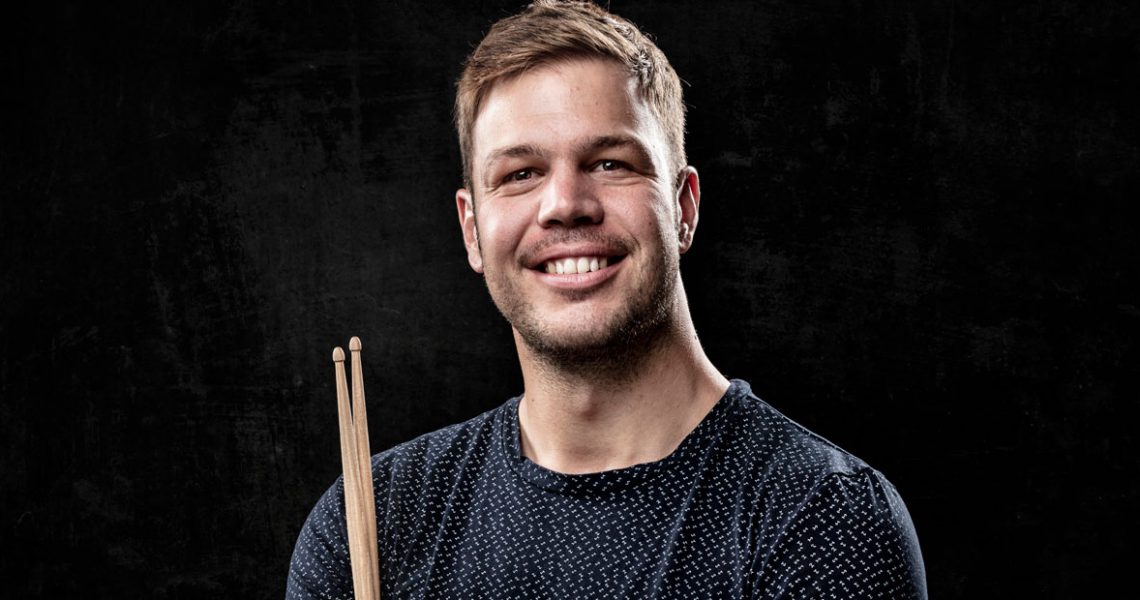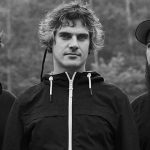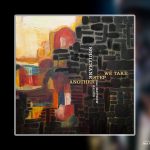Earlier this year a CD arrived on my desk from Swiss percussionist Gregor Lisser. Immediately what caught my attention with this CD was the line-up, a double quartet featuring a String Quartet combined with a more traditional jazz quartet comprising of a rhythm section consisting of piano, bass and drums with solo trumpet. I’ve heard many attempts to combine these forces, some more successful than others, however upon the first listen it became clear that Lisser’s “On Eleven” has moved the bar up a number of notches. With my curiosity now raised I felt the need to reach out to Gregor to find out more about this project.
![]()
Editors Note: This article is an abridged version of the article that appears in the Summer 2019 edition of the Jazz In Europe Magazine. The Magazine is available here.
![]()
Gregor hails from the Swiss town of Solothurn, some 50km from Bern. From a young age, Gregor’s passion was playing the drums however his musical education also extended to tuned percussion. Having performed in many different settings throughout his career, Gregor lists his experience playing the drums in a number of Switzerland’s best known Big Bands including the Swiss Army Big Band, as being a key factor in his development as a musician. It was through this that his interest in arranging and composition was peaked. Having also studied tuned percussion Gregor doesn’t see himself as a mallet player, “While I call myself a percussionist and I love playing mallets, I really see myself as a drummer first and foremost”, said Gregor.
Gregor attended the Bern University of the Arts where he studied jazz drumming as well as composition and arrangement, and it was during his time there that the concept for the “On Eleven” was born. Gregor explained “It was during my studies that I came into contact with the world of the string quartet and fell in love with the sound-scape. I had the opportunity to write some music for string ensemble and it quickly became a dream of mine to combine this sound with a jazz quartet. I did some research and found a recording Max Roach did back in the 1980s with a double quartet and this became the initial inspiration for the concept. I thought man, I really need to do my own version of this.”
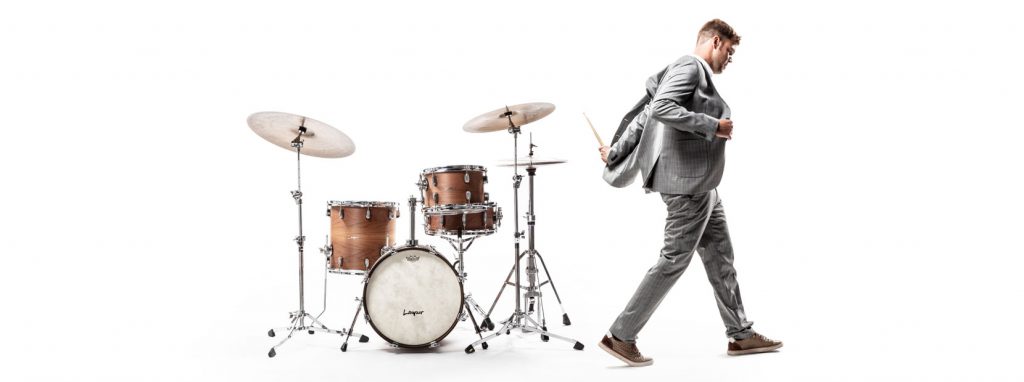
While the line-up for the Max Roach album is similar to the line-up on Gregor’s album, but make no mistake the similarities between the two ends here. Gregor’s arrangements are far more holistic in their approach with both quartets fully integrated and given equal voices. The arrangements allow plenty of room for the string quartet to not only play a supporting role harmonically but also to take their fair share of the thematic duties. Dave Blaser’s trumpet playing is spectacular and while prominent throughout the album it’s never overbearing. In fact, I would go so far as saying his playing is one of the key factors that ties all of this together. One of the most impressive aspects of this album is the way Lisser shifts seamlessly from the through-composed sections to the improvised. The entire album feels completely organic and in no way contrived or over thought.
I asked Gregor what he found to be the greatest challenges when producing the album. “Well, that’s a great question, one of the largest challenges with this was to integrate a string quartet that is essentially very fragile, with the maximum force of the drums and trumpet in the writing process. I was looking for maximum transparency in the arrangements. I was lucky that the musicians I wrote for, were all very experienced in playing both jazz and classical music. They fully understood the concept and what I was trying to achieve with the music. I want to say that they were all crossover players but I don’t like that term, so maybe the best way to put it is to say they’ve all been socialised with many styles of music.”
Gregor went on to say that “although having great musicians that understand the situation, their recording in is a key factor, it doesn’t take away the fact there is an inherent imbalance in volume between the two quartets, so it’s up to the composer to deal with this in the arrangements. I didn’t want to just make an album where the strings were an afterthought. That would have been a missed opportunity.”
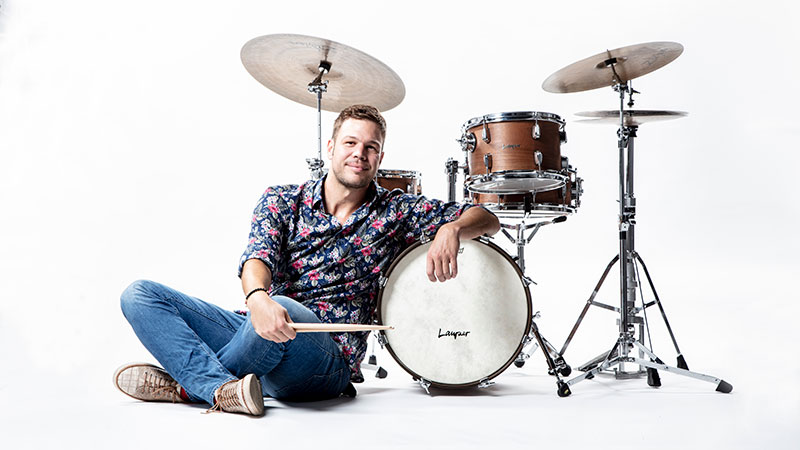
One of the aspects of this recording that impressed me greatly was the seamless manner in which the improvisational aspects were embodied within what is essential through-composed music. I brought up this point with Gregor as I was interested in knowing how he approached this in the compositional stage. Gregor replied “I need to say that on this recording I decided not to have the string quartet improvise, I took the approach to have them basically frame the structure so when you hear the solo passages by violins or cello you know, that this was composed as part of the string arrangements. All of the improvisational passages are taken by the jazz quartet, this was my plan. I wanted to not only produce full compositions but also wanted this structure to be flexible enough to allow for spontaneity. My main focus was to have an album that was full of all the rich sounds and tonal colours you can get with this line-up. I’m happy with the way it came out but I really want to expand the concept so I expect there will be more records along this line in the future.”
Having heard the album a number of times, I can say that I’m deeply impressed with the writing on the album. The entire album feels completely organic and in no way contrived or over thought which is often the case with these type of projects.
Although this recording is led by a drummer, don’t expect a “drum fest” here, this album is about composition and performance. We spoke about this aspect in some depth and Gregor made the point, that even though he’s a drummer he’s only focused on making music. “I love to play drum solos but this is not the point here, I don’t know anyone that has ever won a Grammy because the album has great drum solos on it! I see my self as a musician first and a drummer second.”
If you’re one of those readers who may already be thinking that the album’s title is a reference to Spinal Tap, you’d be wrong. The press release stated “Even the title he‘s given the recording hints at the artistic essence of the album. It‘s a colloquial Swiss expression meaning “to go on foot“and the title alludes to the fact that the inspiration for the album is drawn from hiking in the forest. Gregor spoke about the fast-paced world we live in and mentioned the Chinese proverb “If you are in a hurry, go slowly.” His goal with the music was to explore how deceleration can be expressed musically. “This has nothing to do with tempo’, said Gregor. “Speed has become the mantra of our age. At the same time, slowness can sparkle with unparalleled wonder“ and it’s exactly this aspect of his writing that makes this recording stand out.
At the time we spoke, Gregor was in the process of organizing a number of live shows, however, at that point he was not in a position to list any dates. “These days it’s not that easy to book dates with an eight-piece band but the biggest issue is coordinating the schedules of eight musicians. However, I hope to be able to announce some performance dates in the near future.”
With that said, we’ll have to wait to have the opportunity to see “On Eleven” live. In the meantime, the record is available in all the usual places and if you are looking for an adventurous listen, then you can’t go past this album.

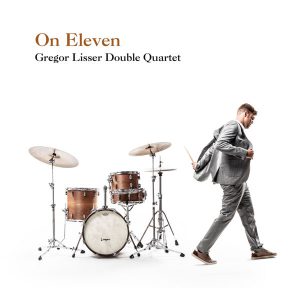 Gregor Lisser’s “On Eleven” is now available on Mons Records. You can purchase and/or stream the album here. More information on Gregor Lisser can be found at his website.
Gregor Lisser’s “On Eleven” is now available on Mons Records. You can purchase and/or stream the album here. More information on Gregor Lisser can be found at his website.
Photo Credits: André Scheidegger
Last modified: April 29, 2020


